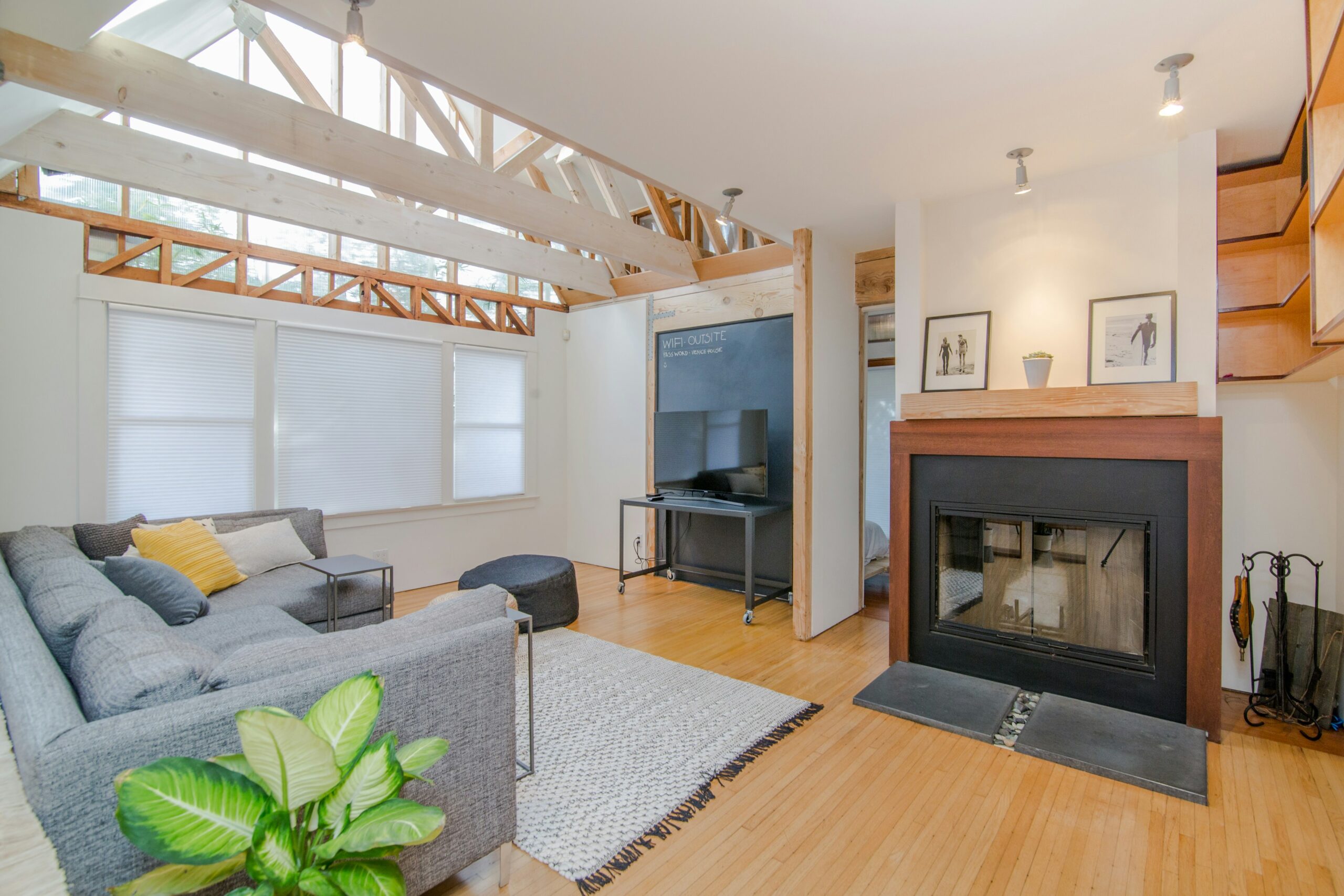Imagine never having to worry about a power outage again. With a home power backup system, you can ensure that your essential appliances and devices continue to run smoothly during unforeseen blackouts. But how long can these systems really provide power? From refrigerators to smartphones, we’ll explore the average duration of a home power backup system and how it can give you peace of mind in times of electrical uncertainty.
Understanding Home Power Backup Systems
The basics of home power backup systems
Home power backup systems are essential for ensuring uninterrupted electricity supply during power outages. These systems are designed to provide backup power to your home, allowing you to continue your daily activities without any disruption. Whether it’s due to severe weather conditions, grid failures, or other unforeseen circumstances, having a backup power system in place gives you peace of mind and a reliable source of electricity when you need it most.
Different types of power backup systems
There are several different types of power backup systems available for residential use. The most common ones include gas generators, propane generators, solar power systems, and battery backup systems. Each type has its own advantages and considerations, depending on factors such as cost, availability of fuel, environmental impact, and the specific requirements of your home.
How home power backup systems work
Home power backup systems operate by storing energy during times when electricity is available and utilizing it during power outages. These systems consist of various components, including batteries, inverters, charge controllers, and sometimes generators. The batteries are the heart of the system, storing the energy produced by the source (such as solar panels or through charging) and converting it into usable electricity for your home. The inverters convert the stored energy from DC to AC, allowing it to power your appliances and devices. In case of insufficient stored energy, generators can automatically kick in to provide backup power.
The Role of Batteries in Power Backup Systems
Battery capacity and longevity
The capacity and longevity of the batteries used in power backup systems are crucial factors to consider. Battery capacity refers to the amount of energy a battery can store, and it is typically measured in ampere-hours (Ah). The higher the battery capacity, the longer it can provide backup power. Battery longevity, on the other hand, refers to the lifespan of the battery, which can vary depending on the type of battery and how it is used and maintained.
How batteries store and supply energy
Batteries store energy through a chemical reaction that occurs between the positive and negative terminals. When the battery is charged, this chemical reaction allows electrons to move from the positive terminal to the negative terminal, storing energy in the process. When backup power is needed, the stored energy is then released, allowing the electrons to flow in the opposite direction and provide power to your home.
Types of batteries used in power backup systems
Different types of batteries are used in power backup systems, each with its own characteristics and suitability for specific applications. Common types of batteries include lead-acid batteries, lithium-ion batteries, and nickel-cadmium batteries. Lead-acid batteries are the most widely used due to their lower cost, but they have a shorter lifespan compared to lithium-ion batteries, which offer higher energy density and longer cycle life. Nickel-cadmium batteries are less common but known for their durability and ability to withstand deep discharge cycles.

Factors that Affect How Long a Backup System Can Provide Power
Energy usage in your home
The amount of energy your home consumes plays a significant role in determining how long a backup system can provide power. If your energy usage is high, the backup system will need to supply more power, reducing its longevity. It is essential to evaluate your energy consumption and consider energy-efficient practices to optimize the backup system’s performance.
Capacity of your power backup system
The capacity of your power backup system, including both the source (e.g., solar panels) and battery capacity, determines how much energy can be stored and supplied during an outage. A higher capacity system can sustain power for a more extended period. It is crucial to assess your home’s power requirements and choose a backup system with sufficient capacity to meet your needs.
Amount of available sunlight (for solar systems)
For solar power backup systems, the amount of available sunlight directly impacts their ability to generate and recharge stored energy. Regions with limited sunlight or frequent cloudy days may experience reduced energy production and longer recharging times for the batteries. It is essential to consider your geographic location’s solar potential when opting for a solar-based backup system.
Health and age of the batteries
The health and age of the batteries significantly influence the backup system’s performance and longevity. Over time, batteries experience degradation, reducing their capacity to store and deliver energy. Regular maintenance, such as checking battery health and ensuring proper charging and discharging cycles, is crucial for maximizing the lifespan and efficiency of the batteries and the overall backup system.
How to Calculate Power Backup Longevity
Determining your home’s energy usage
To calculate the power backup longevity, you need to determine your home’s energy usage. Start by identifying the wattage or kilowatt-hour (kWh) ratings of each appliance and device you intend to power during an outage. Multiply this rating by the estimated hours of usage to calculate the energy consumption for each item. Sum up the energy consumption of all devices to obtain your total energy usage.
Understanding your backup system’s capacity
Once you know your home’s energy usage, compare it to the capacity of your power backup system. This includes the energy storage capacity of the batteries and the power generation capacity of the source (e.g., solar panels or generator). If your energy usage exceeds the system’s capacity, you may need to consider optimizing your energy consumption or upgrading your backup system.
Factoring in potential energy losses
When calculating power backup longevity, it is crucial to account for potential energy losses within the system. Inefficiencies during energy conversion (e.g., from DC to AC) or transmission can result in energy losses. It is recommended to factor in a certain percentage of energy loss to ensure a realistic estimation of how long your backup system can provide power.

Maximizing the Efficiency of Your Power Backup System
Regular maintenance practices
Regular maintenance is key to maximizing the efficiency and longevity of your power backup system. This includes inspecting and cleaning solar panels (if applicable), checking battery health, cleaning terminals, and ensuring proper ventilation and airflow around the system components. Periodic maintenance by a professional can also identify and address any potential issues before they impact the system’s performance.
Optimal placement for solar panels (if applicable)
If you have a solar-based power backup system, the proper placement of solar panels is crucial for maximizing energy production. Positioning the panels to receive the maximum amount of sunlight throughout the day ensures optimal energy generation and recharge. Consultation with a solar professional can help determine the best placement for your specific location, taking into account factors such as shading and roof orientation.
Using energy-efficient appliances in your home
To improve the efficiency of your power backup system, consider using energy-efficient appliances and devices in your home. Energy-efficient appliances consume less power, reducing the strain on your backup system and extending its longevity. Look for appliances with ENERGY STAR ratings or other energy-efficient labels to ensure they meet high-efficiency standards.
Limitations and Challenges of Using a Home Power Backup System
Occasional lack of sufficient power supply
While home power backup systems are designed to provide reliable backup power, there might be instances where the system cannot meet the entire energy demand of your home. During prolonged outages or times of high power requirements, such as running multiple high-energy appliances simultaneously, the backup system might struggle to keep up. It is important to be aware of these limitations and prioritize essential energy needs during such situations.
Regular need for maintenance
Home power backup systems require regular maintenance to ensure their optimal performance. This can involve battery replacements, cleaning, checking and maintaining the source components, and overall system inspections. It is recommended to follow the manufacturer’s guidelines and schedule maintenance checks to avoid any potential issues and extend the lifespan of your system.
Change of lifestyle to accommodate for energy efficiency
Using a power backup system may require some lifestyle adjustments to optimize energy efficiency. This can involve practicing energy-saving habits, like turning off lights and appliances when not in use, using natural lighting whenever possible, and adjusting thermostat settings to reduce energy consumption. These adjustments can help maximize the efficiency of your backup system and minimize energy losses.

The Lifespan of a Home Power Backup System
Typical lifespan of backup system components
The lifespan of a home power backup system can vary depending on the components used. Batteries, for instance, typically have a lifespan of 5 to 15 years, depending on the type and usage patterns. Solar panels can last 25 years or more, while generators and inverters have lifespans ranging from 10 to 30 years, depending on maintenance and usage. Regular maintenance and timely replacement of components are essential for ensuring the longevity of your backup system.
How regular use affects the lifespan
The frequency and duration of use can impact the lifespan of a home power backup system. Systems that are frequently used or subjected to prolonged power outages may experience faster wear and tear on components. Conversely, systems that are rarely utilized may have longer lifespans due to minimal stress and usage. It is important to strike a balance between using your backup system when needed and preserving its longevity through efficient energy practices.
The impact of maintenance on lifespan
Regular maintenance plays a vital role in extending the lifespan of a home power backup system. As mentioned earlier, routine inspections, cleaning, and component replacements can prolong the lifespan of batteries, solar panels, generators, and inverters. Neglecting maintenance or delaying necessary repairs can lead to premature failure of components and a shorter overall lifespan for the backup system.
Benefits of Having a Home Power Backup System
Reliability during power outages
One of the primary benefits of a home power backup system is reliable electricity supply during power outages. With a backup system in place, you can continue using essential appliances, such as refrigerators, heating/cooling systems, medical devices, and lights, ensuring comfort and safety for you and your family. It also provides peace of mind, knowing that you won’t be left powerless during critical situations.
Potential cost savings over time
While the initial costs of installing a home power backup system can be significant, it can lead to long-term cost savings. By reducing reliance on grid-supplied electricity and utilizing renewable energy sources such as solar power, you can potentially lower your monthly energy bills. Additionally, some regions offer incentives or net metering programs that allow you to earn credits or receive compensation for excess energy generated by your backup system.
Environmentally-friendly energy options
Home power backup systems that utilize renewable energy sources, such as solar power, offer environmentally-friendly alternatives to traditional grid-supplied electricity. By reducing reliance on fossil fuel-based electricity generation, backup systems with solar panels help reduce carbon emissions and minimize the environmental impact. This makes them a sustainable and eco-friendly choice for homeowners looking to minimize their carbon footprint.
Comparing the Costs of Different Power Backup Systems
Initial costs vs. long-term costs
When considering a home power backup system, it is essential to evaluate both the initial costs and the long-term costs. Gas and propane generators may have lower upfront costs but can incur ongoing fuel expenses. Solar power systems and battery backup systems generally have higher initial costs but can provide long-term cost savings through reduced reliance on grid electricity and potential incentives. It is advisable to calculate the overall costs, including fuel and maintenance, to determine the most cost-effective option for your specific needs.
Costs associated with different types of systems
The costs associated with different types of power backup systems can vary significantly. Gas and propane generators require fuel purchases, regular maintenance, and occasional repairs. Solar power systems involve costs such as solar panel installation, inverters, battery storage, and maintenance. Battery backup systems may require periodic battery replacements. Consider all these associated costs when determining the most suitable and financially viable backup system for your home.
The role of size and capacity in cost
The size and capacity of a power backup system directly impact its cost. Larger systems with higher energy storage capacity and power generation capabilities will generally come with a higher price tag. It is important to assess your home’s energy needs and balance them against your budgetary constraints when choosing the system size and capacity. Opting for a well-sized system that meets your requirements without overdoing it can help you strike the right balance between functionality and cost.
Future Developments and Upgrades in Power Backup Systems
Emerging technology in the field of power backup
The field of power backup systems is constantly evolving, with new technologies and advancements offering improved efficiency and performance. Emerging technologies include more efficient solar panels, advanced battery chemistries, smart grid integration, and enhanced control systems. These innovations aim to make backup systems more cost-effective, reliable, and user-friendly, providing homeowners with even better solutions for power backup.
How upgrades can increase longevity and efficiency
Upgrading your existing power backup system can help increase its longevity and efficiency. Upgrades may involve replacing outdated components, such as batteries or inverters, with newer and more efficient models. Adding energy management systems, such as advanced monitoring or load management software, can optimize the system’s performance and usage. Regularly evaluating and incorporating technological advancements can extend the lifespan and enhance the overall efficiency of your power backup system.
The potential impact of future developments on costs
As technology continues to advance in the field of power backup systems, it is anticipated that costs will gradually decrease. Improved manufacturing processes, economies of scale, and increased adoption of renewable energy sources are expected to contribute to lower costs. Additionally, governmental incentives and policies promoting clean energy may further reduce the overall costs associated with home power backup systems. It is worth monitoring these developments and considering their potential impact on costs before making a purchase decision.
In conclusion, home power backup systems offer reliable electricity supply during power outages, ensuring comfort, safety, and peace of mind. Understanding the basics of these systems, the role of batteries, factors affecting power backup longevity, and how to calculate it is essential when considering an installation. By maximizing the efficiency of your backup system through regular maintenance, optimal placement of solar panels, and using energy-efficient appliances, you can optimize its performance and minimize energy losses. While home power backup systems have limitations and require regular maintenance, their benefits include reliability, potential cost savings, and environmentally-friendly energy options. When comparing the costs of different systems, it’s important to consider both the initial and long-term costs, as well as the size and capacity of the system. Looking towards the future, ongoing developments in power backup technology hold the potential for increased longevity, efficiency, and reduced costs.

